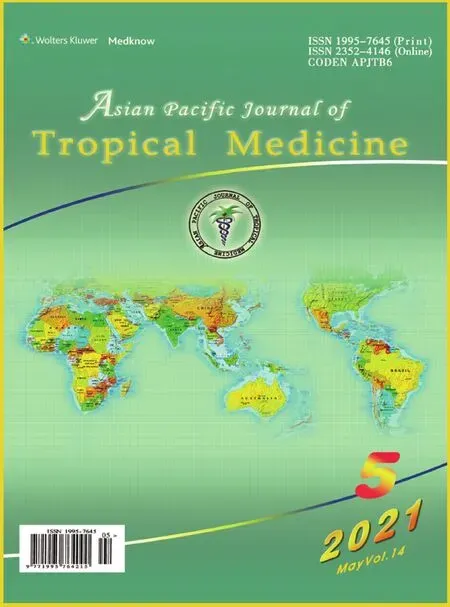Perceived susceptibility, severity, and reinfection of COVID-19 may influence vaccine acceptance
Sanjana Kathiravan, Nikhil Singhania, Ashok Kumar Pannu✉
1Department of Psychiatry, Postgraduate Institute of Medical Education and Research, Chandigarh, India
2Department of Internal Medicine, Postgraduate Institute of Medical Education and Research, Chandigarh, India
To the editor: We read with interest the article by Huynh G et al[1]. We congratulate them for performing a cross-sectional survey among healthcare personnel (HCP) to understand their knowledge and attitudes towards the coronavirus disease 2019(COVID-19) vaccine immediately before the vaccination. It is essential to consider HCP’s attitudes about the vaccination because previous experiences with the influenza epidemic have shown a low acceptance and uptake of influenza vaccine among the general population and, more strikingly, among HCP, despite being a highly vulnerable subgroup[2].
We have several concerns regarding the interpretation of the index study. The perceived susceptibility (risk of infection) and perceived severity of the disease (i.e. beliefs that they do not need the vaccine)are crucial determinants contributing to vaccine hesitancy in HCP[3,4]. The index survey participants were HCP not directly caring for COVID-19 patients, which might have affected their perception of the illness and concerns of spreading the infection to their family or friends. Given the mean age of about 40 years, the medical comorbid illness status of the surveyed HCP should have been looked into, further affecting the perceived risk of infection and its severity. The opinion of HCP who previously had COVID-19 infection was not evaluated in the survey. Perceived risk of reinfection might have influenced the attitude towards the vaccine.Moreover, the burden of COVID-19 in Vietnam is much lesser than in most other Asian countries, and the survey was also not nationwide.
The index survey also found that the sources of television resulted in a higher inclination to get vaccinated. However, the spread of misand disinformation through the media and social media platformsreferred to as ‘infodemic’ by the World Health Organization usually increases vaccine hesitancy[5]. Apart from the scientific concerns,HCP are not entirely unaffected by ‘infodemic’.
Overall, the index survey explored many relevant components of the health belief model. However, the vaccine adoption might differ in a healthcare population in the areas with high transmission, who are directly exposed to the COVID-19 patients or have medical comorbidities.
Conflict of interest statement
The authors declare that there are no conflicts of interest.
Authors’ contributions
S.K. wrote the first draft of the manuscript. Both N.S. and A.K.P.authors contributed to the final version of the manuscript. A.K.P.developed the theoretical formalism and supervised the project.
 Asian Pacific Journal of Tropical Medicine2021年5期
Asian Pacific Journal of Tropical Medicine2021年5期
- Asian Pacific Journal of Tropical Medicine的其它文章
- Perceived susceptibility, severity, and reinfection of COVID-19 may influence vaccine acceptance-Authors' reply
- Successful containment of a COVID-19 outbreak in Bach Mai Hospital by prompt and decisive responses
- Peltzman effect and resurgence of COVID-19 in India
- Leishmania donovani: Immune response and immune evasion with emphasis on PD-1/PDL-1 pathway and role of autophagy
- Circulatory and hepatic failure at admission predicts mortality of severe scrub typhus patients: A prospective cohort study
- Circulation of Brucellaceae, Anaplasma and Ehrlichia spp. in borderline of Iran,Azerbaijan, and Armenia
